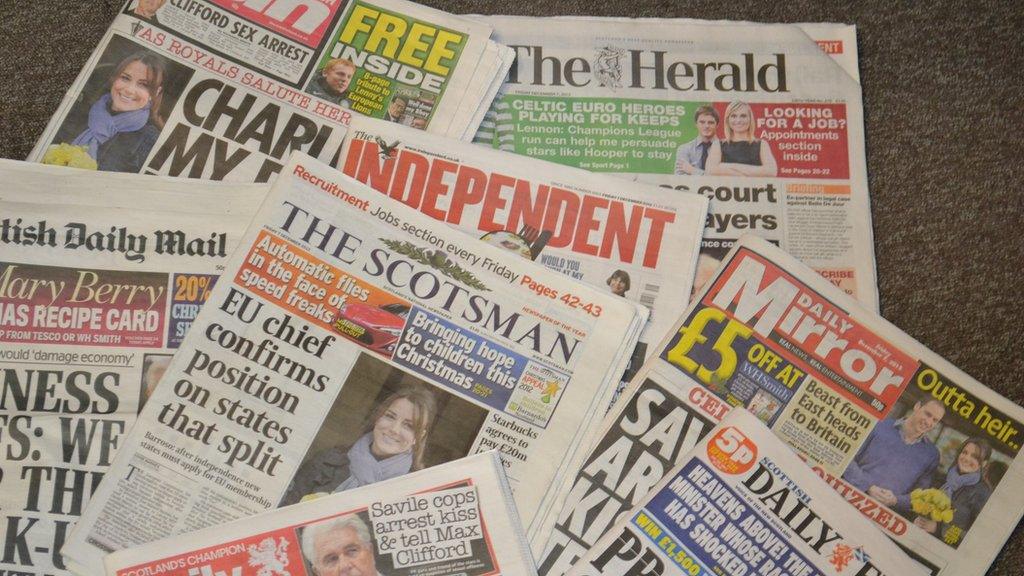Sunday Herald referendum sales boost after 'Yes' support in referendum
- Published
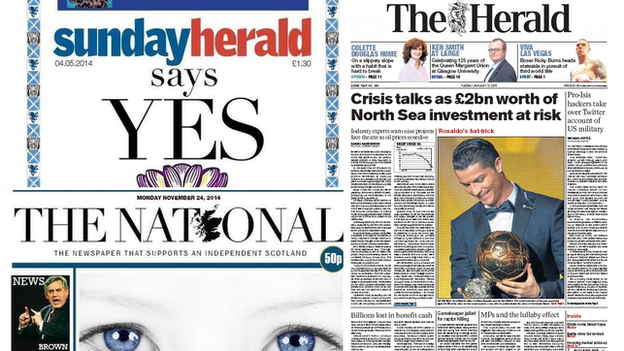
The Herald and Sunday Herald both saw their circulation increase in the run up the the referendum vote.
The only paper to publically back independence saw a dramatic surge in circulation in the run up to the referendum.
Sunday Herald sales stood at a weekly average of 31,795 in December 2014, up 31% over the course of the year.
Sister paper The Herald also saw a boost in sales during the referendum period.
But managing editor of Herald & Times Group Tom Thomson said circulation for the titles had since "eroded".
Mr Thomson said the referendum boost had failed to offset a yearly decline in sales of The Herald.
Over the course of 2014 the number of copies sold fell by 8% to a weekly average of 35, 707.
The figures are internal estimates provided by the Herald & Times Group, from Scottish actively purchased sales.
Speaking at a conference looking at media in Scotland after the referendum, Mr Thomson said a 25% jump in digital subscriptions during the referendum period, with the majority of people continuing to pay the subscription in the months following the vote, had helped cushion the fall in circulation.
He also reported that during September 2014 traffic to the newspaper's website doubled, and said he hoped readership would again increase in the run up to the Westminster general election in May.
'Prudent business decision'
Mr Thomson told the audience, made up of media professionals, academics, students and members of the public, that some within the newspaper's management had been concerned that editor Richard Walker's decision for the Sunday Herald to back a "Yes" vote would be bad for business.
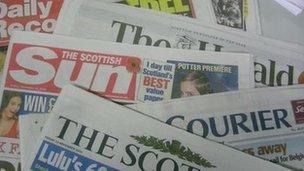
However, he said the figures demonstrated that although the move had been a purely editorial decision, it had also been a "prudent business decision" and showed that the print media still had a role to play.
Figures published earlier this year by newspaper sales auditor ABC reported the Sunday Herald was selling an average of 25,100 a week between January and June 2014.
The group is also responsible for the pro-independence newspaper The National, launched on 24 November 2014, which Mr Thomson described as the "most significant development for the industry post-referendum".
He said that while many had described the "bold move" to launch a new print title in a contracting print market as "foolhardy", the paper had seen an estimated average circulation of 30,471 in December 2014, and has plans to launch a website.
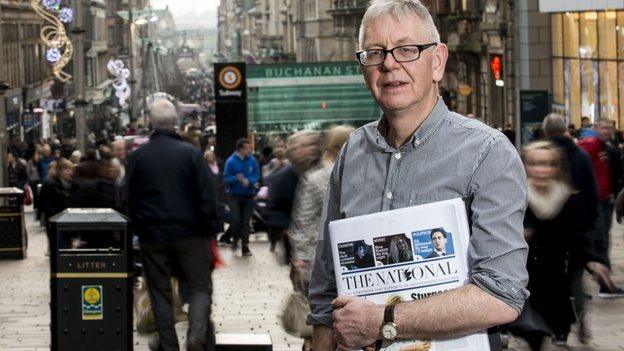
At its launch editor Richard Walker said The National's raison d'etre was to "redress the balance and cogently to argue the case for independence".
Lasting impact
Talking about the newspaper industry in Scotland more generally Mr Thomson said that while "tartan editions" of England-based newspapers were taking a large market share in Scotland, there was still a market for quality pan-Scotland coverage.
He said: "The prospect of home rule offers a fantastic opportunity to hold our leaders to account in a way that English titles are ill-equipped to do.
"We can develop a niche as local and indigenous players - good for democracy and equally good for business."
He added: "I think the impact on newspapers will be long-lasting particularly if the SNP become more important in the UK after the general election. There is now such engagement in politics that I think interest in political analysis and reporting is going to continue, which is fantastic news for the industry."
Prof Neil Blain, the former head of media at Stirling University, also spoke at the event, which was hosted by Glasgow Caledonian University.
He agreed that the referendum would affect how the media would cover the upcoming general election.
Prof Blain said: "I think broadcasters will feel they are being watched very, very carefully by the Scottish public for signs of bias one way or the other as the election approaches.
"However I think a big issue for Scotland is whether London broadcasters will change the way they cover British politics. So far I'm not seeing that.
"I'm seeing the main parties as the Tories, Labour, the Lib Dems, and now UKIP, with the SNP generally not figuring, and maybe a little bit of debate about the Greens.
"So, so far I don't think [the referendum] has impacted on the London broadcasters all that much."
- Published27 August 2014
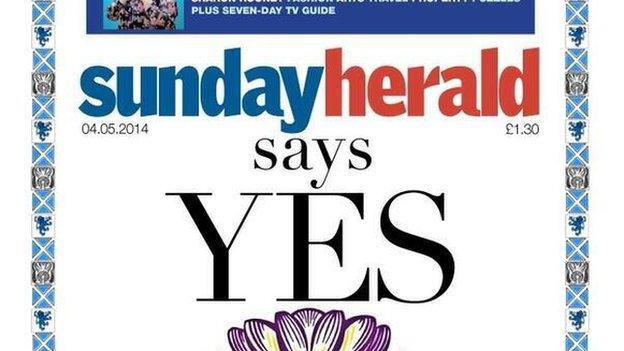
- Published22 November 2014
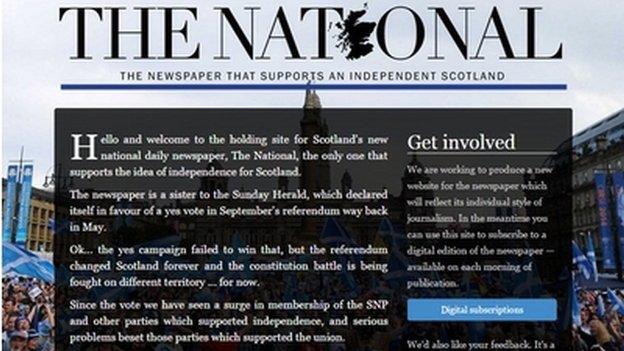
- Published27 February 2014
